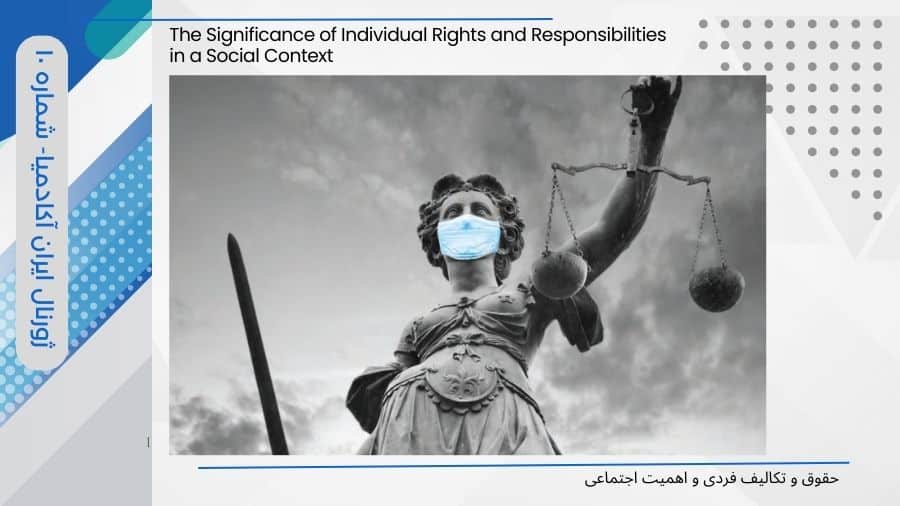Abstract
The coronavirus (COVID-19), first identified in Wuhan, China, in December 2019, rapidly spread to densely populated areas in Iran, evolving into a pandemic. The outbreak was officially recognized by Iran’s Ministry of Health in February 2020. The pandemic presented unprecedented challenges to public health in multiple domains, notably the absence of a social contract to limit individual rights. Such philosophical and legal impasses regarding the balance between individual health rights and societal living are rare in human history. The world, with limited resources, endeavored to mitigate the disaster without incurring high mortality rates. The crisis highlighted a side-effect regarding the modern dimensions of individual and social rights. The necessity of ensuring health rights amidst abundant scientific and experimental unknowns compelled unprecedented limitations on individual rights. Meanwhile, citizens acquiesced to decisions made by political leaders amidst skepticism and the absence of a reference system or social contract, with low trust in these decisions. In secular and democratic societies, leaders, constrained to rely on scientific data – derived from probabilistic and statistical indices and field experiences – faced a dilemma. Citizens encountered two innovations in human rights: philosophically, individual natural rights descended from absolutism to relativism; legally, their inseparable sphere shifted to a prioritization process. Secular and democratic societies, due to their history of grappling with such individual-social challenges, adapted more swiftly and with fewer casualties to this legal crisis. However, in countries like China and Iran, where individual rights are less prioritized, decisions were less committed to respecting these rights. In China, social rights were prioritized, leading to compulsory, long-term quarantine of infected individuals. In Iran, where ideological tenets predominantly guide decisions, directives were imposed on citizens. Ultimately, these governments turned to the same relative scientific data concerning health systems, albeit less efficiently, as citizens, without active and responsible participation or access to adequate and accurate information, deviated from top-down imposed “theoretical” or “ideological and ethical” principles, reducing adherence to emergency regulations. Therefore, the squandered trust capital of citizens added to the burden of the COVID-19 problem. This paper underscores the necessity of prioritizing natural rights and citizen-based educational management to facilitate the development of a social contract in crises, akin to secular and democratic countries.
[1] Publishing of The Red Cross https://blogs.icrc.org/ir/2020/05/19-1918/
[2] Natural and fundamental rights are essentially inseparable from one another. For example, the right to nutrition and the right to health are indivisible.


